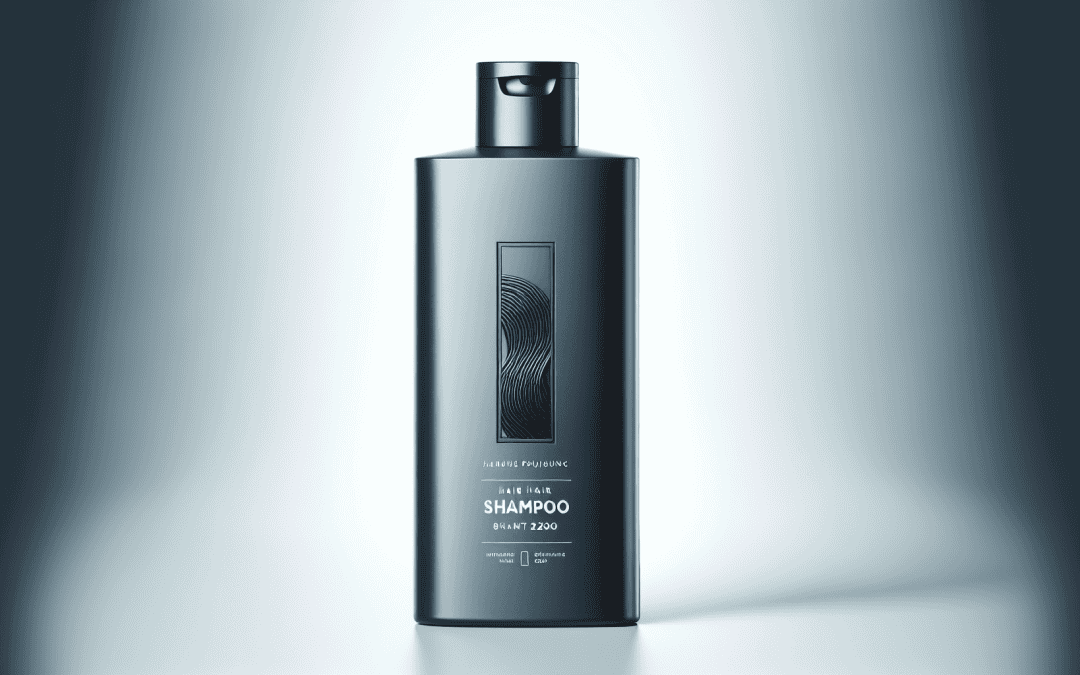After undergoing surgery, it’s important to take extra care of yourself during the recovery process. And yes, that includes your precious locks! But with so many shampoo options out there, how do you know which one is the best for washing your hair post-surgery? Well, fret not, because in this article, we’re going to help you find the perfect shampoo that will keep your hair clean, healthy, and aid in your recovery. So, say goodbye to the guesswork and get ready to have fabulous, post-surgery hair!
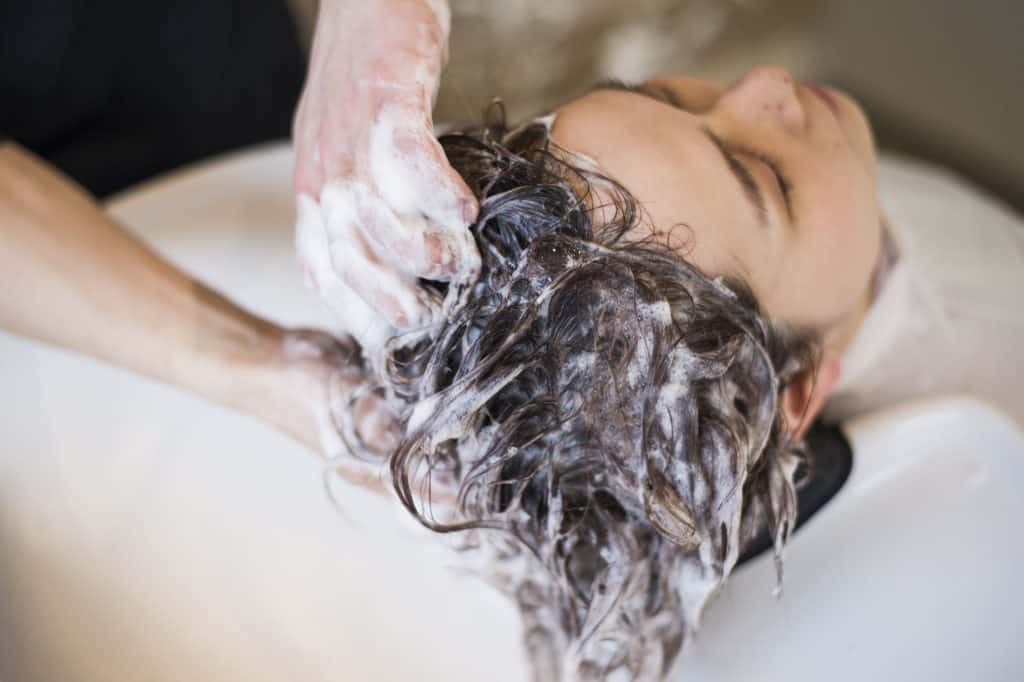
Understanding the Importance of Choosing the Right Shampoo
When it comes to preserving the health of our hair and scalp, choosing the right shampoo is of utmost importance. The shampoo we use not only cleanses our hair, but it also plays a crucial role in maintaining the overall health and appearance of our hair and scalp. In this article, we will delve into the reasons why choosing the right shampoo is essential and explore different factors to consider when selecting a shampoo that meets our specific needs.
Preserving Hair and Scalp Health
One of the primary reasons for selecting the right shampoo is to preserve the health of our hair and scalp. Our hair and scalp are constantly exposed to environmental pollutants, sweat, and product buildup, which can lead to various issues such as dryness, breakage, and scalp conditions. By choosing a shampoo that suits our hair type and addresses any specific concerns, we can effectively cleanse and nourish our hair and scalp, promoting overall health.
Preventing Infections
A commonly overlooked aspect of choosing the right shampoo is its role in preventing infections. Our scalp is susceptible to infections due to various factors, including poor hygiene, excessive oil production, and the presence of bacteria or fungi. Using a shampoo that contains antimicrobial or antifungal properties can help prevent infections, keeping our scalp clean and healthy.
Catering to Specific Post-Surgical Needs
If you have recently undergone surgery, it is important to choose a shampoo that caters to your specific post-surgical needs. Depending on the type of surgery, your healthcare provider may recommend certain products or advise against others. Consulting with your healthcare provider is crucial in determining the appropriate shampoo to use during your post-surgery recovery.
Consulting with Your Healthcare Provider
When it comes to choosing the right shampoo after surgery, it is always advisable to seek professional advice. Your healthcare provider understands your individual medical history and can provide specific recommendations based on your unique circumstances. They can guide you on the appropriate time to start using shampoo, any specific ingredients or formulas to avoid, and any post-surgical guidelines to follow.
Seeking Professional Advice
When consulting with your healthcare provider, be sure to discuss your hair care routine and any concerns you may have. They can evaluate your scalp condition and recommend suitable shampoos that promote healing and maintain scalp health. Remember that your healthcare provider is there to support you during your recovery process, and they can provide valuable insights and advice regarding your hair care routine.
Considering Surgical Recommendations
Depending on the type of surgery you have undergone, there may be specific recommendations regarding your hair care routine. For example, if you have had scalp surgery, your healthcare provider may advise against using any harsh shampoos that could potentially irritate the surgical site. By following your healthcare provider’s recommendations, you can ensure a smooth recovery process and minimize any potential complications.
Determining Any Allergies or Sensitivities
Before selecting a shampoo, it is essential to determine any allergies or sensitivities you may have. Some individuals may be allergic to certain ingredients commonly found in shampoos, such as fragrances or sulfates. Allergic reactions can range from mild irritation to severe skin rashes or scalp inflammation. By identifying and avoiding any potential allergens, you can prevent adverse reactions and maintain the health of your hair and scalp.
Choosing a Gentle and Non-Irritating Formula
When selecting a shampoo for post-surgery hair care, it is advisable to choose a gentle and non-irritating formula. Harsh shampoos can strip the hair and scalp of their natural oils, leading to dryness, itchiness, and potential damage. Opting for sulfate-free shampoos can help retain moisture and prevent excessive drying of the hair and scalp.
Opting for Sulfate-Free Shampoos
Sulfates are commonly used in shampoos for their foaming and cleansing properties. However, they can be harsh and drying, especially for individuals with sensitive or post-surgical scalps. Choosing sulfate-free shampoos can help maintain the natural moisture balance of the hair and scalp, preventing dryness and irritation.
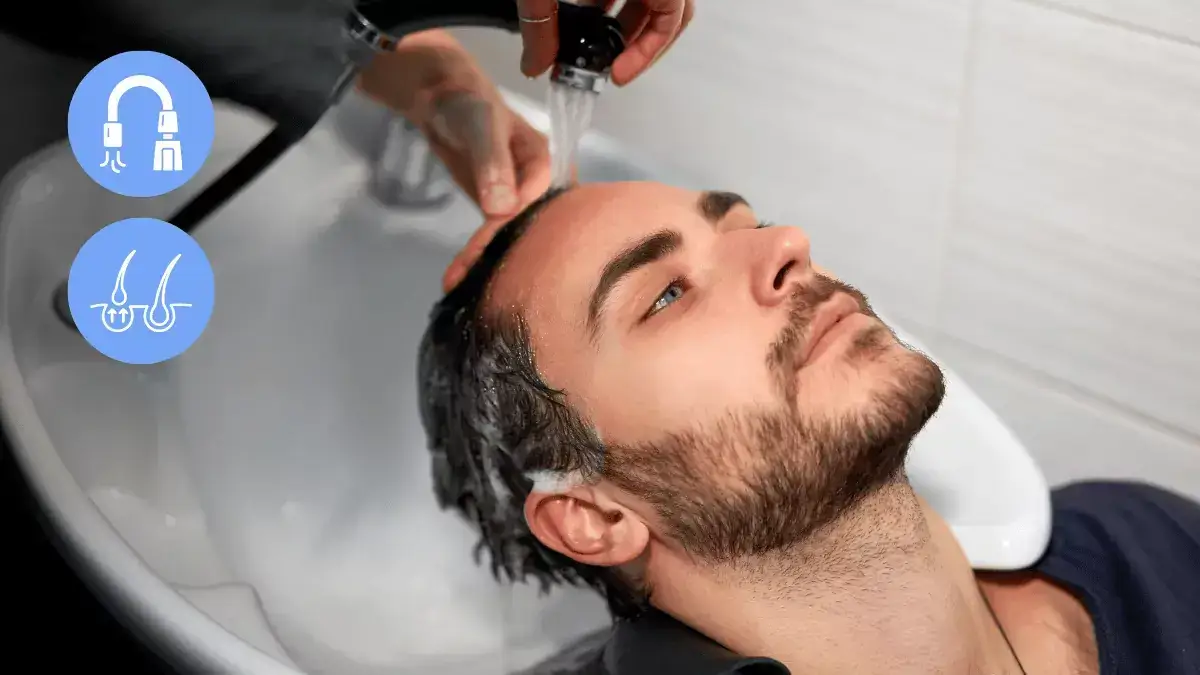
Avoiding Fragrances and Harsh Chemicals
Fragrances and harsh chemicals found in some shampoos can also cause scalp irritation and sensitivity. To minimize the risk of adverse reactions, it is best to avoid shampoos with added fragrances or harsh chemicals. Opt for milder formulations that prioritize scalp health and minimize the risk of further irritation.
Selecting pH-Balanced Products
The pH balance of our hair and scalp plays a crucial role in their overall health. The natural pH of the scalp is slightly acidic, ranging from 4.5 to 5.5. Choosing a shampoo with a similar pH can help maintain the scalp’s natural balance, preventing dryness, itchiness, and potential scalp issues. Look for shampoos specifically labeled as pH-balanced for optimal scalp health.
Moisturizing and Nourishing Shampoos
To promote healthy hair growth and maintain moisture balance after surgery, it is beneficial to choose moisturizing and nourishing shampoos. These shampoos often contain ingredients such as natural oils, vitamins, and proteins that help replenish moisture, hydrate the scalp, and promote overall hair health.
Replenishing Moisture and Hydration
Post-surgery, our hair and scalp may experience dryness and dehydration. Moisturizing and nourishing shampoos help replenish the lost moisture, providing hydration to the scalp and hair. Look for ingredients like argan oil, shea butter, or aloe vera, which are known for their moisturizing properties.
Promoting Hair Health and Growth
Choosing a shampoo with ingredients that promote hair health and growth can be highly beneficial after surgery. Look for shampoos that contain biotin, keratin, or other vitamins and proteins that help strengthen the hair follicles, prevent breakage, and support healthy hair growth.
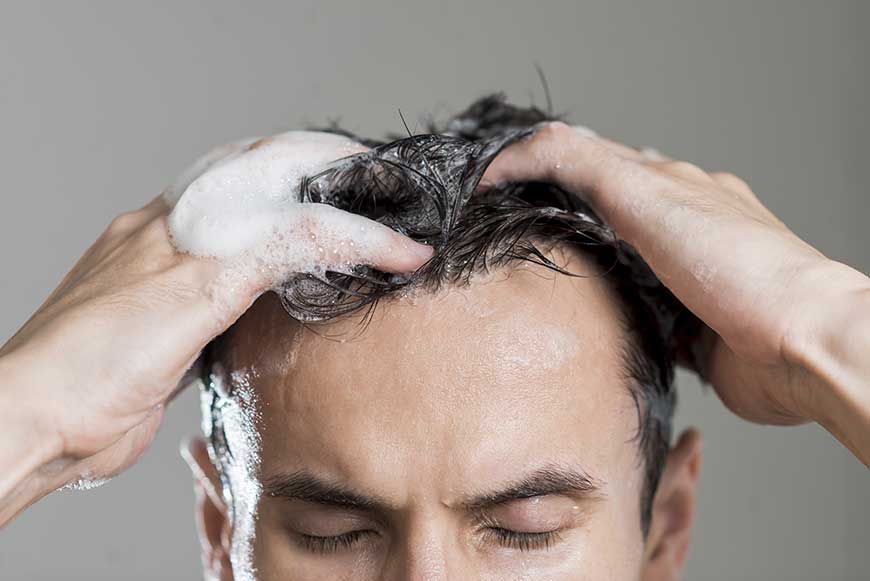
Considering Natural and Organic Ingredients
If you prefer natural and organic products, consider selecting shampoos that contain natural and organic ingredients. These formulas often exclude harsh chemicals and synthetic additives, which can be beneficial for individuals with sensitive or post-surgical scalps. Natural ingredients like herbal extracts, essential oils, or plant-based proteins can provide gentle yet effective cleansing and nourishment.
Mild Cleansing for Sensitive Scalp
If you have a sensitive or tender scalp, it is crucial to choose a shampoo that offers gentle cleansing without causing further irritation. Look for shampoos specifically formulated for sensitive scalps or labeled as hypoallergenic.
Choosing Mild, Hypoallergenic Shampoos
Mild and hypoallergenic shampoos are designed to minimize irritation and allergic reactions on sensitive scalps. These shampoos often exclude common irritants such as fragrances, sulfates, and harsh chemicals. Opting for a mild, hypoallergenic shampoo can help soothe your sensitive scalp and prevent any discomfort or unwanted reactions.
Caring for Sensitive and Tender Scalp
After surgery, your scalp may be more sensitive due to the healing process. It is important to handle your scalp with care and choose gentle hair care products accordingly. When shampooing, use your fingertips instead of nails to massage the scalp gently. Additionally, avoid excessive rubbing or scratching, as this could potentially disrupt the healing process.
Avoiding Excessive Stripping of Natural Oils
While it is necessary to maintain a clean and healthy scalp, it is equally important to avoid excessive stripping of natural oils. These oils play a crucial role in keeping the scalp moisturized and protecting the hair shaft. Harsh shampoos can strip away these natural oils, leading to dryness and potential damage. Opt for gentle cleansing and avoid over-washing to preserve the scalp’s natural moisture balance.
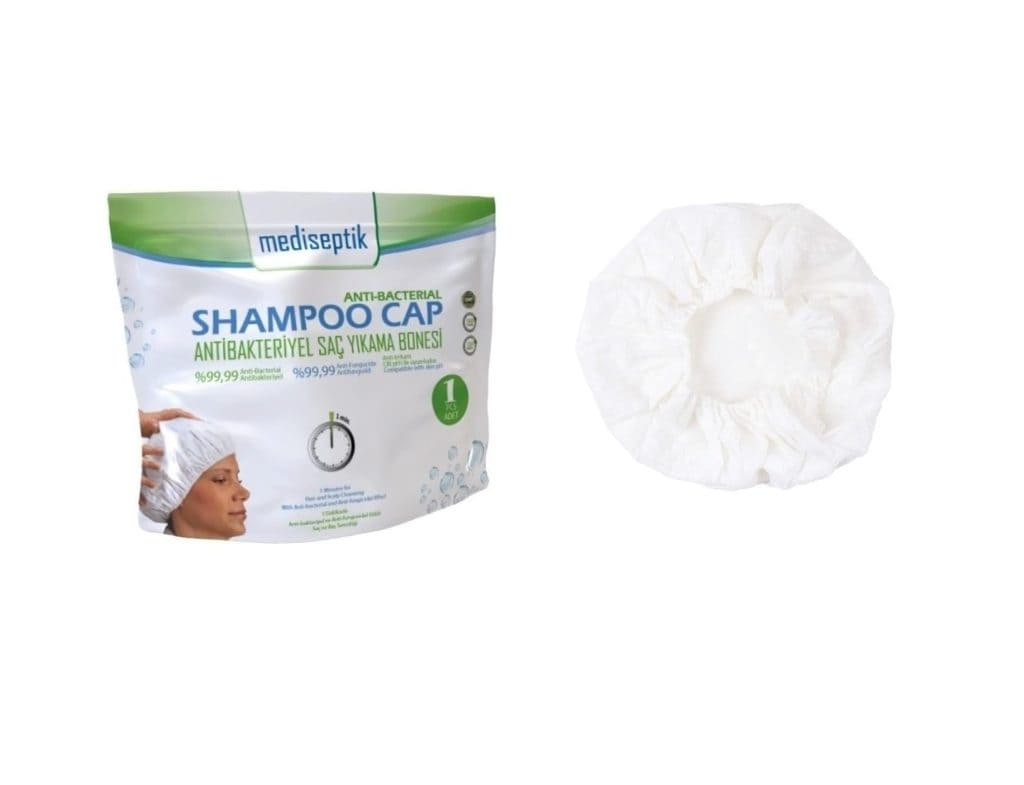
Special Considerations for Specific Hair Types
Different hair types have unique needs, and selecting a shampoo tailored to your specific hair type is essential. By considering the characteristics of your hair, such as its thickness, texture, or color treatment, you can choose a shampoo that provides optimal care.
Fine Hair: Volumizing and Strengthening Formulas
If you have fine hair, it is beneficial to choose a volumizing and strengthening shampoo. These shampoos generally contain ingredients that add thickness and body to fine strands while promoting strength and preventing breakage. Look for ingredients like proteins and polymers that help boost volume and enhance the overall appearance of your fine hair.
Curly or Coarse Hair: Moisturizing and Defining Products
Curly or coarse hair often requires extra moisture and definition to maintain its natural texture. Choosing a shampoo specifically formulated for curly or coarse hair can help moisturize and define your curls or waves. These shampoos usually contain ingredients like shea butter, coconut oil, or other natural moisturizers that nourish the hair shaft, enhance curl pattern, and reduce frizz.
Color-Treated Hair: Sulfate-Free and Color-Safe Shampoos
If you have color-treated hair, it is crucial to choose a shampoo that is sulfate-free and color-safe. Sulfates can strip away the color molecules from the hair, leading to premature fading and dullness. Color-safe shampoos are designed to protect the vibrancy and longevity of your hair color while gently cleansing and nourishing the hair.
Post-Surgery Hair Care Routine
After surgery, it is important to establish a proper hair care routine to promote healing and maintain the health of your hair and scalp. Here are some essential steps to follow in your post-surgery hair care routine:
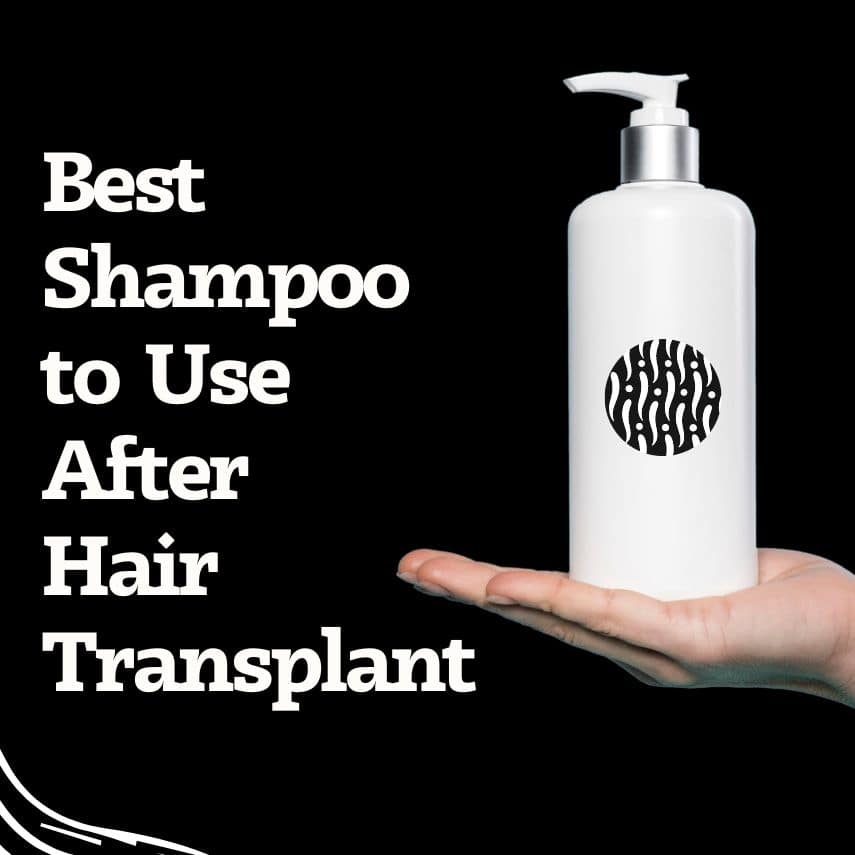
Observe Any Surgical-Specific Guidelines
Before starting your post-surgery hair care routine, it is essential to follow any surgical-specific guidelines provided by your healthcare provider. These guidelines may include specific instructions on when and how to start washing your hair, which products to use, and any precautions to take to ensure proper healing.
Gently Massage and Cleanse Scalp
When washing your hair post-surgery, it is crucial to be gentle and avoid applying excessive pressure to your scalp. Use your fingertips to massage the shampoo into your scalp gently. Avoid scratching or rubbing vigorously, as this can disrupt the healing process and potentially cause further irritation or discomfort.
Rinse Thoroughly and Avoid Residue
After washing your hair, ensure that you rinse thoroughly to remove any shampoo residue. Residue can lead to product buildup, dryness, and potential scalp issues. Rinse your hair with lukewarm water until all the shampoo is completely removed, leaving your scalp and hair clean and refreshed.
Embracing Dry Shampoo as an Alternative
If you prefer to limit the frequency of traditional washes or cannot wash your hair immediately after surgery, dry shampoo can be a convenient alternative. Dry shampoo helps absorb excess oil and refresh the hair between washes, allowing you to maintain clean-looking hair without water.
Limiting Frequency of Traditional Washes
In some cases, you may need to limit the frequency of traditional washes during your post-surgery recovery. This could be due to specific guidelines provided by your healthcare provider or the need to minimize any potential irritation or disruption to the surgical area. Dry shampoo can be used to extend the time between washes, providing a quick refresh and maintaining a clean scalp.
Retaining Hair Style and Volume
Dry shampoo also helps retain hair style and volume, making it especially useful for individuals with specific hairstyles or those who prefer a more voluminous look. By spraying dry shampoo to the roots, gently massaging, and brushing it through, you can add texture, absorb oil, and maintain your desired hairstyle.
Choosing a Quality Dry Shampoo
When selecting a dry shampoo, it is important to choose a high-quality product that suits your hair type and needs. Look for dry shampoos that are lightweight, residue-free, and specifically formulated for your hair type or concerns. Quality dry shampoos effectively absorb oil without leaving a heavy or powdery residue, ensuring your hair looks and feels refreshed.
Considering Scalp and Hair Conditions
If you have specific scalp or hair conditions, such as dandruff, dry scalp, or oily scalp, it is crucial to choose a shampoo that addresses those concerns effectively. Here are some considerations for different scalp and hair conditions:
Dandruff Concerns: Antifungal and Anti-Dandruff Shampoos
If you struggle with dandruff, it is advisable to choose shampoos that contain antifungal and anti-dandruff properties. These shampoos help combat the underlying causes of dandruff, such as excess yeast or fungal growth on the scalp, providing relief and reducing flaking. Look for active ingredients like zinc pyrithione, ketoconazole, or selenium sulfide that target dandruff-causing agents.
Dry Scalp: Hydrating and Soothing Formulas
For individuals with dry scalp, it is important to choose shampoos that provide hydration and soothing properties. Look for shampoos that contain moisturizing ingredients like hyaluronic acid, jojoba oil, or glycerin, which help replenish moisture and alleviate dryness. Additionally, avoiding hot water and over-washing can also benefit individuals with dry scalp concerns.
Oily Scalp: Controlling Excess Sebum
If you have an oily scalp, it is best to choose shampoos that help control excess sebum production. These shampoos typically contain ingredients like salicylic acid, tea tree oil, or citrus extracts that effectively dissolve excess oil and clarify the scalp. Avoiding heavy or oil-based hair products can also help manage oiliness and maintain a balanced scalp.
Post-Surgery Hair Care Tips
In addition to choosing the right shampoo, there are various post-surgery hair care tips to keep in mind to ensure optimal healing and maintain the health of your hair and scalp. Here are some essential tips:
Being Gentle While Brushing and Styling
After surgery, it is important to be gentle while brushing and styling your hair. Use a wide-toothed comb or a brush specifically designed for detangling to avoid pulling or tugging on your hair. Start from the ends and work your way up to prevent breakage and minimize any discomfort on the scalp.
Avoiding Heat Styling Tools
Heat styling tools, such as flat irons or curling irons, can potentially damage your hair and scalp, especially during the post-surgery recovery phase. It is advisable to avoid using heat styling tools until you are fully healed to prevent any unnecessary strain or damage to your hair.
Maintaining a Balanced and Nutritious Diet
Maintaining a balanced and nutritious diet plays a vital role in the health of your hair and scalp. Be sure to consume a diet rich in vitamins, minerals, and proteins that promote overall hair health and growth. Incorporate foods like fruits, vegetables, lean proteins, and omega-3 fatty acids into your meals to provide the necessary nutrients for healthy hair.
In conclusion, choosing the right shampoo is essential for preserving the health of your hair and scalp, especially after surgery. By consulting with your healthcare provider, considering your specific needs and hair type, and selecting gentle and nourishing formulas, you can promote healing, prevent infections, and maintain optimal hair and scalp health. Remember to follow any surgical-specific guidelines, be mindful of your scalp and hair conditions, and adopt a post-surgery hair care routine that caters to your unique needs. With the right shampoo and proper care, you can ensure the health and vitality of your hair and scalp in the post-surgery period and beyond.

